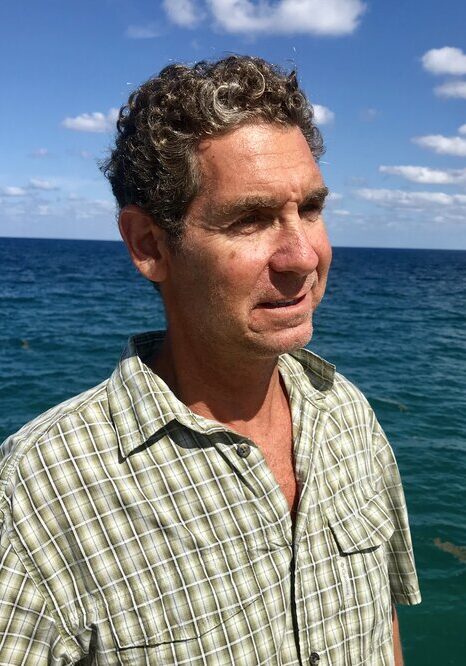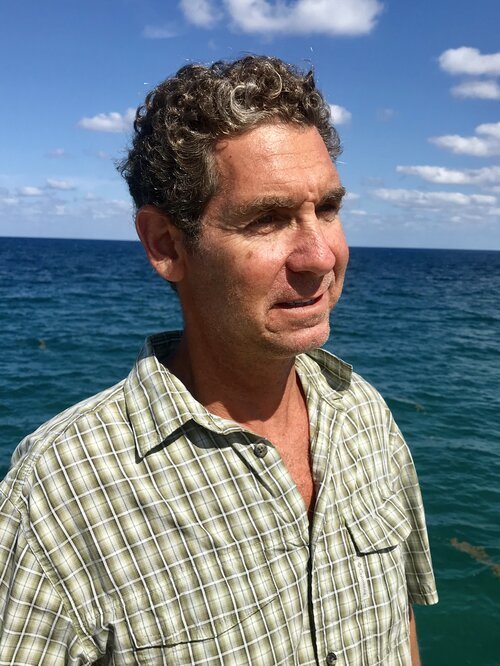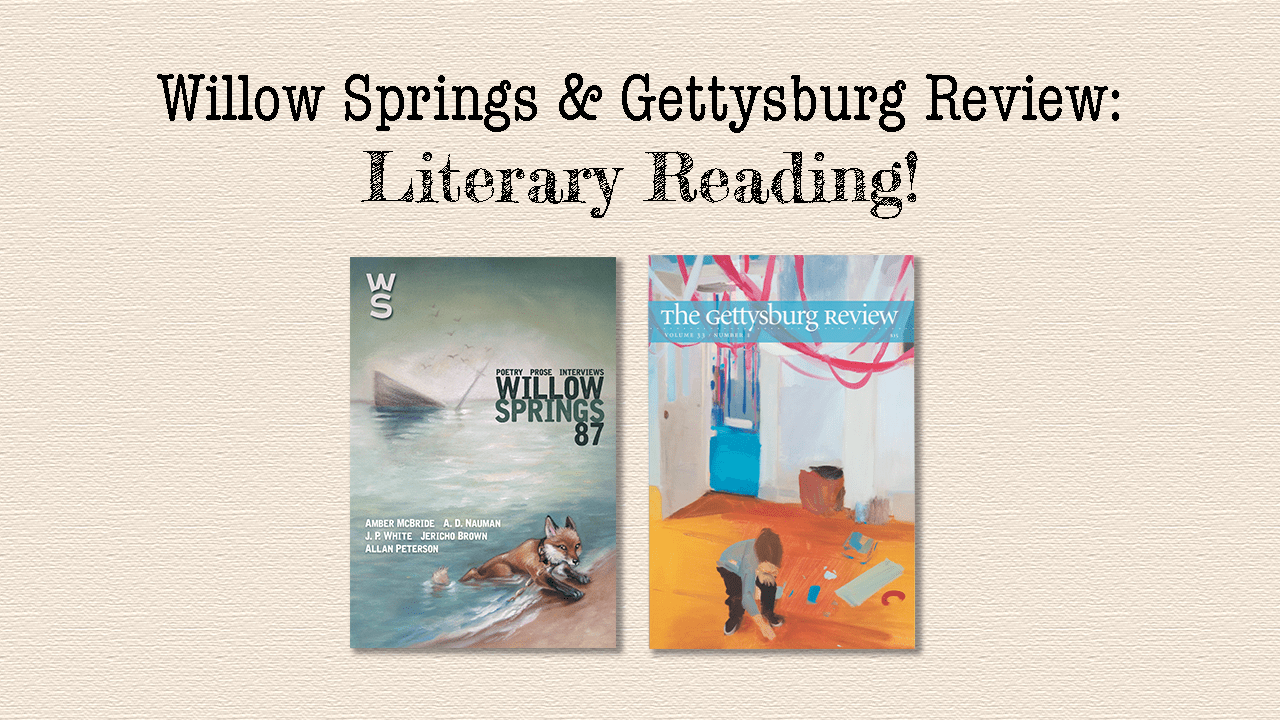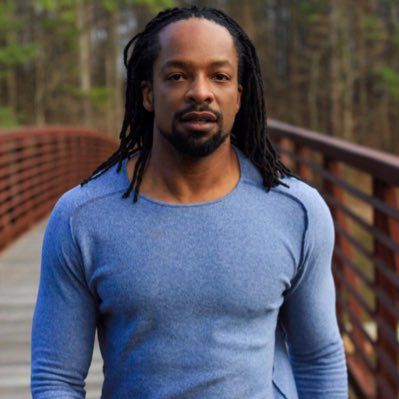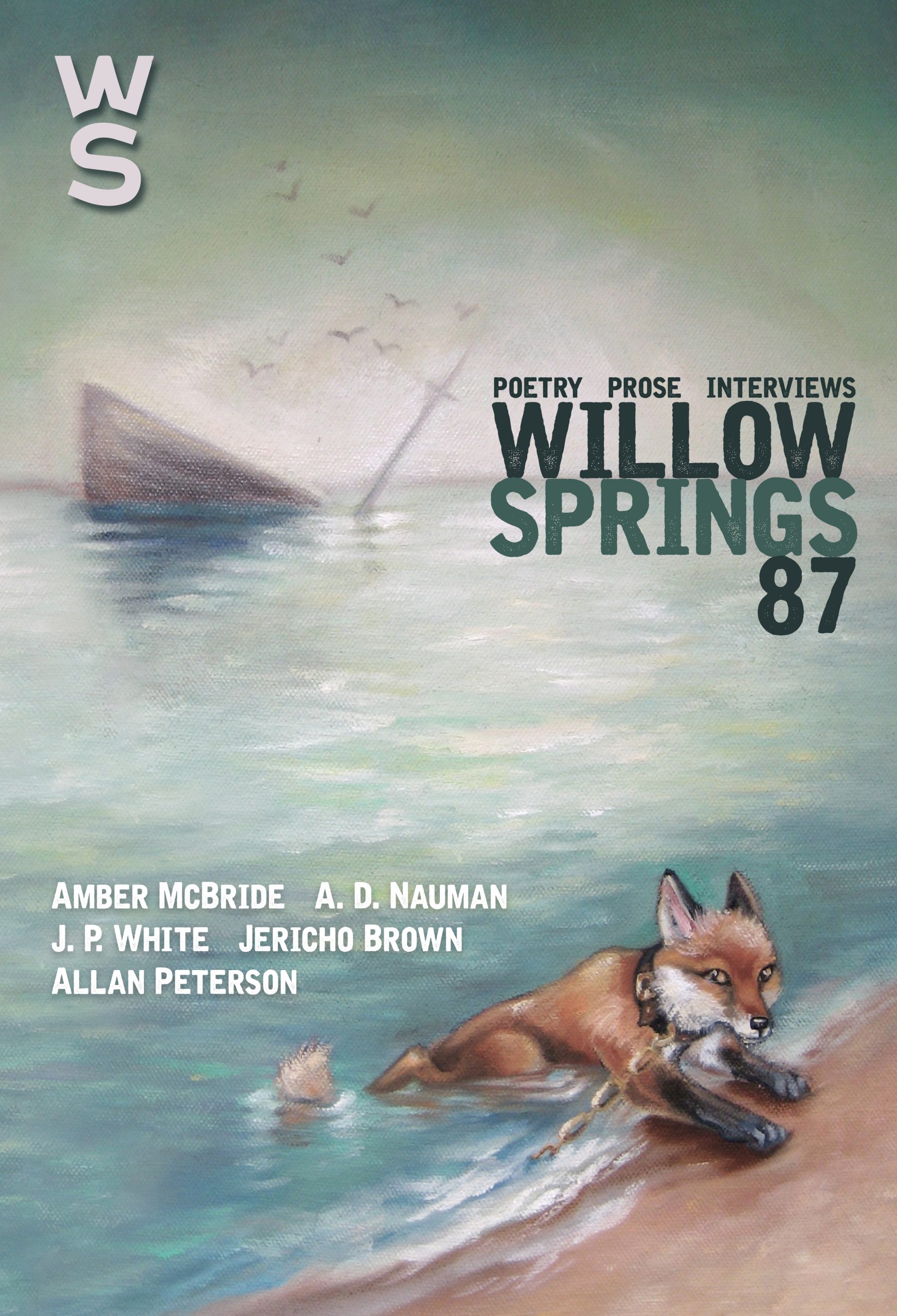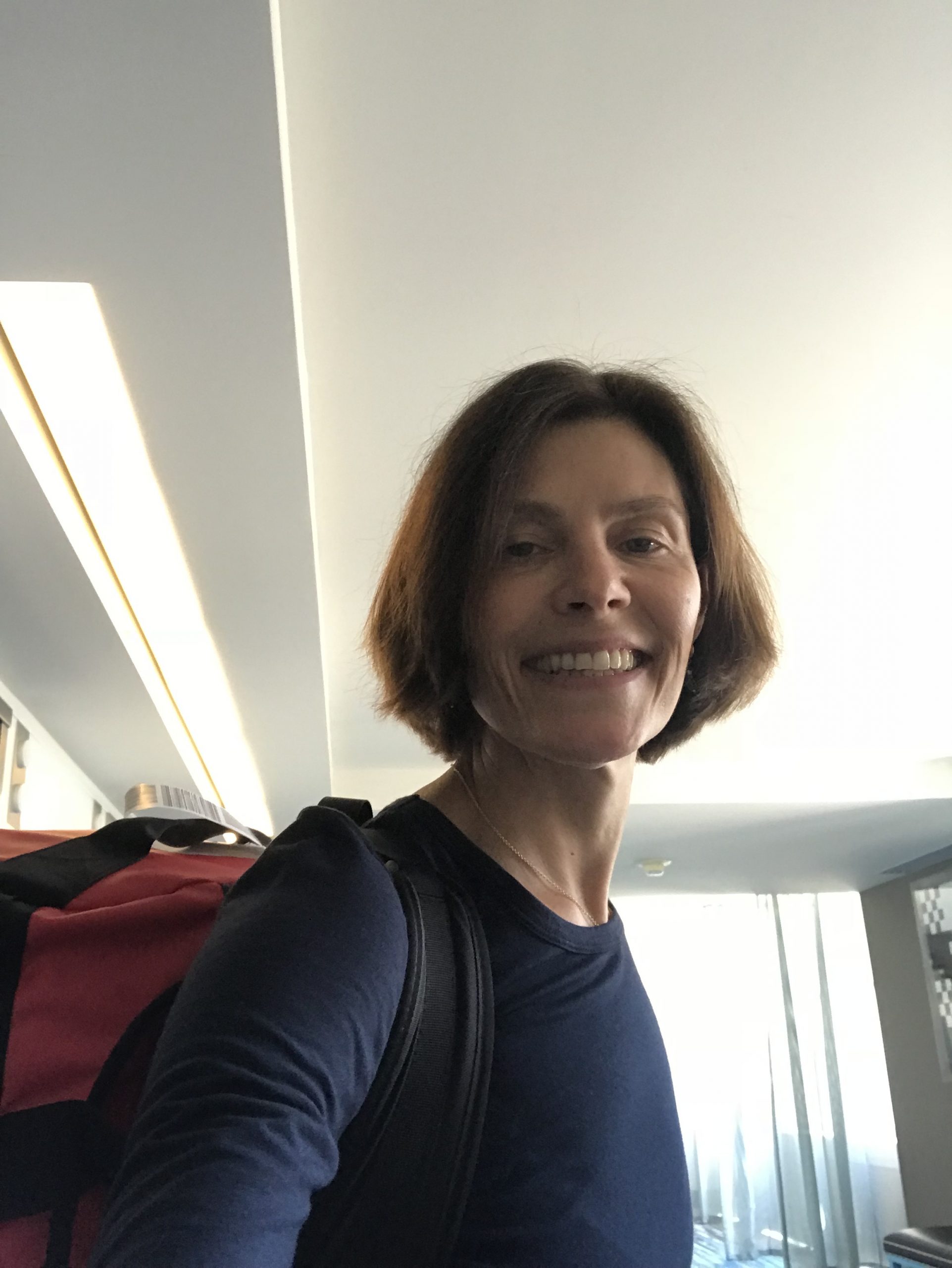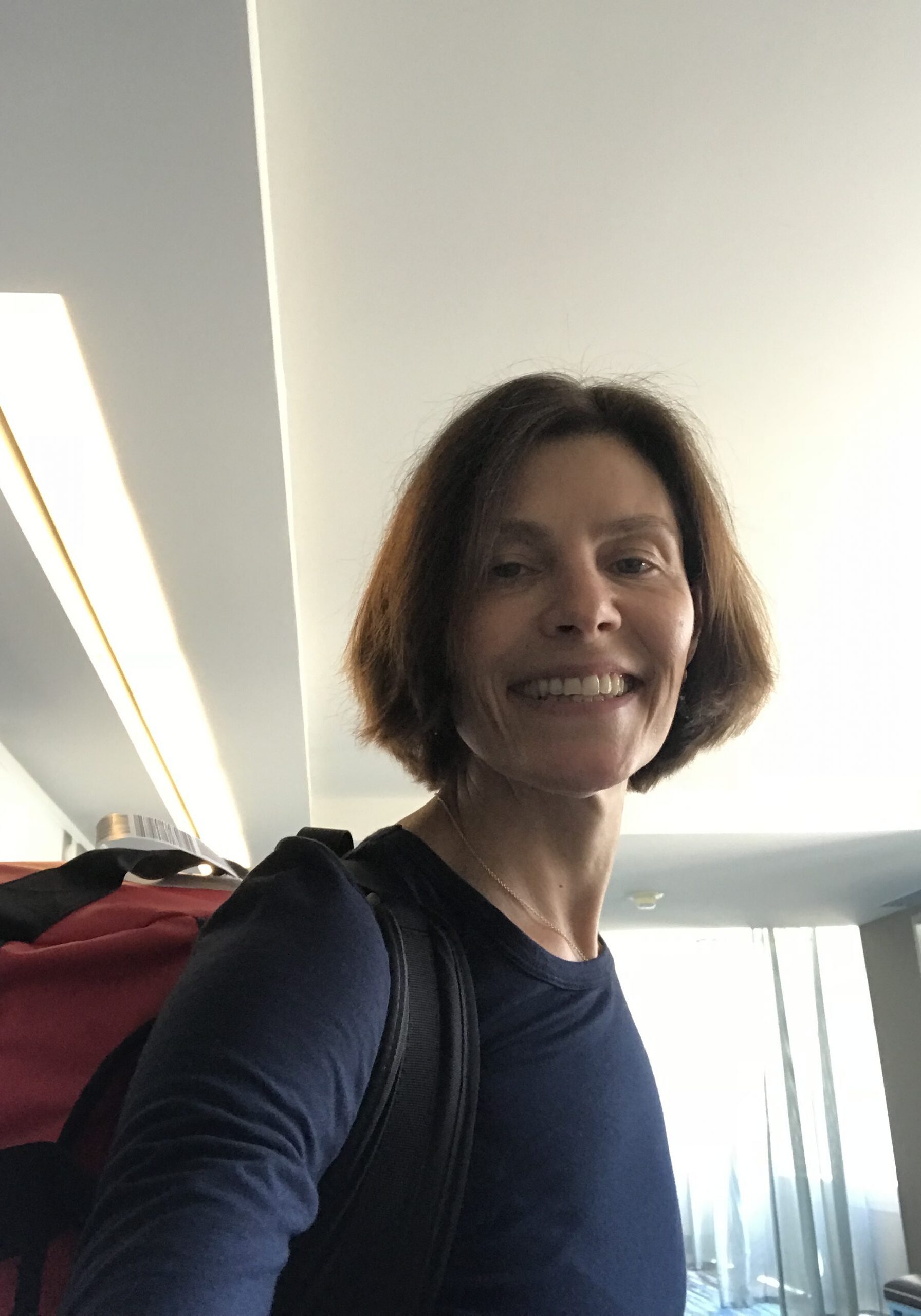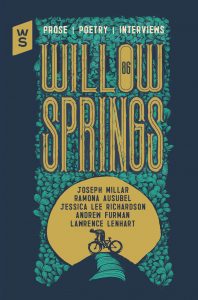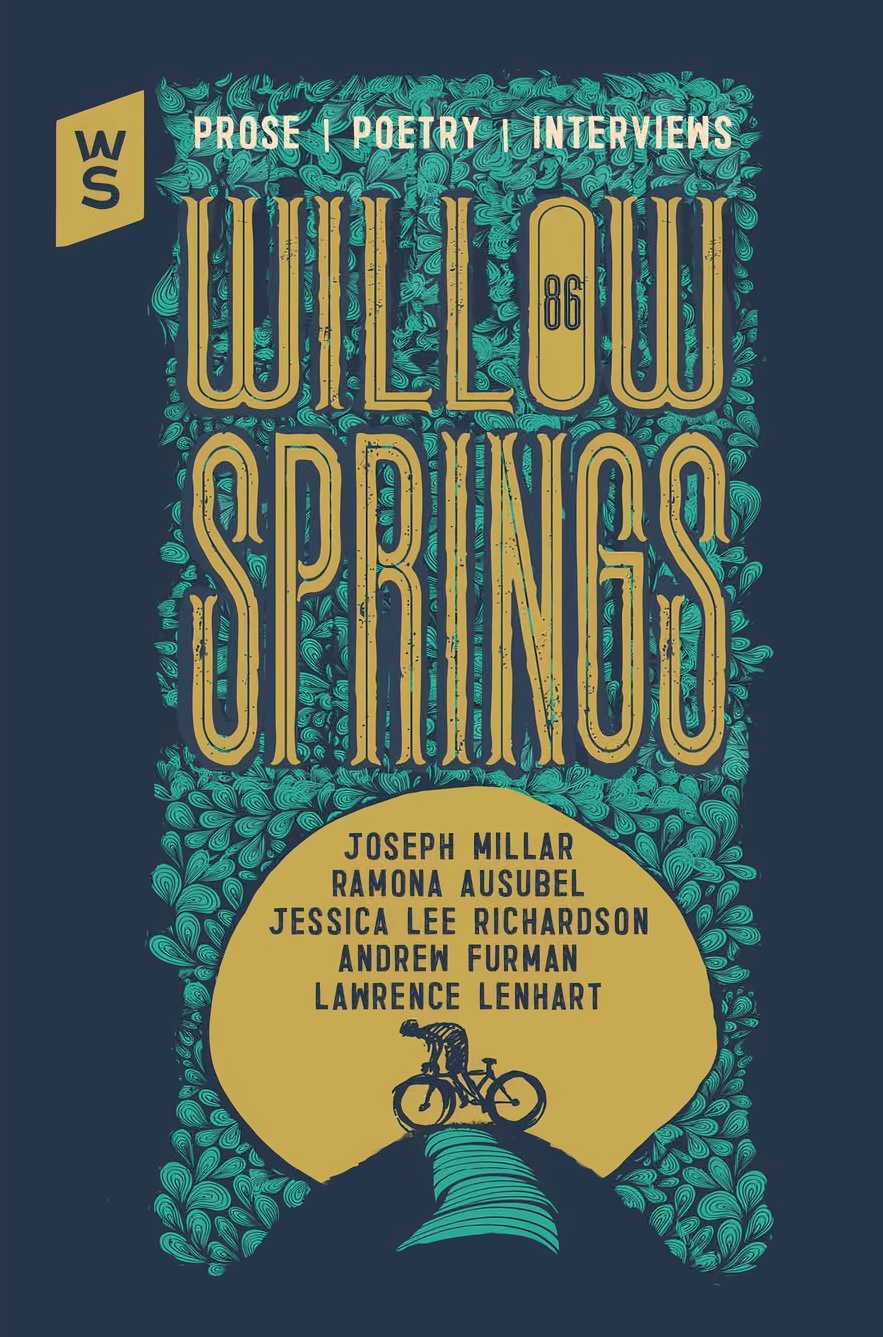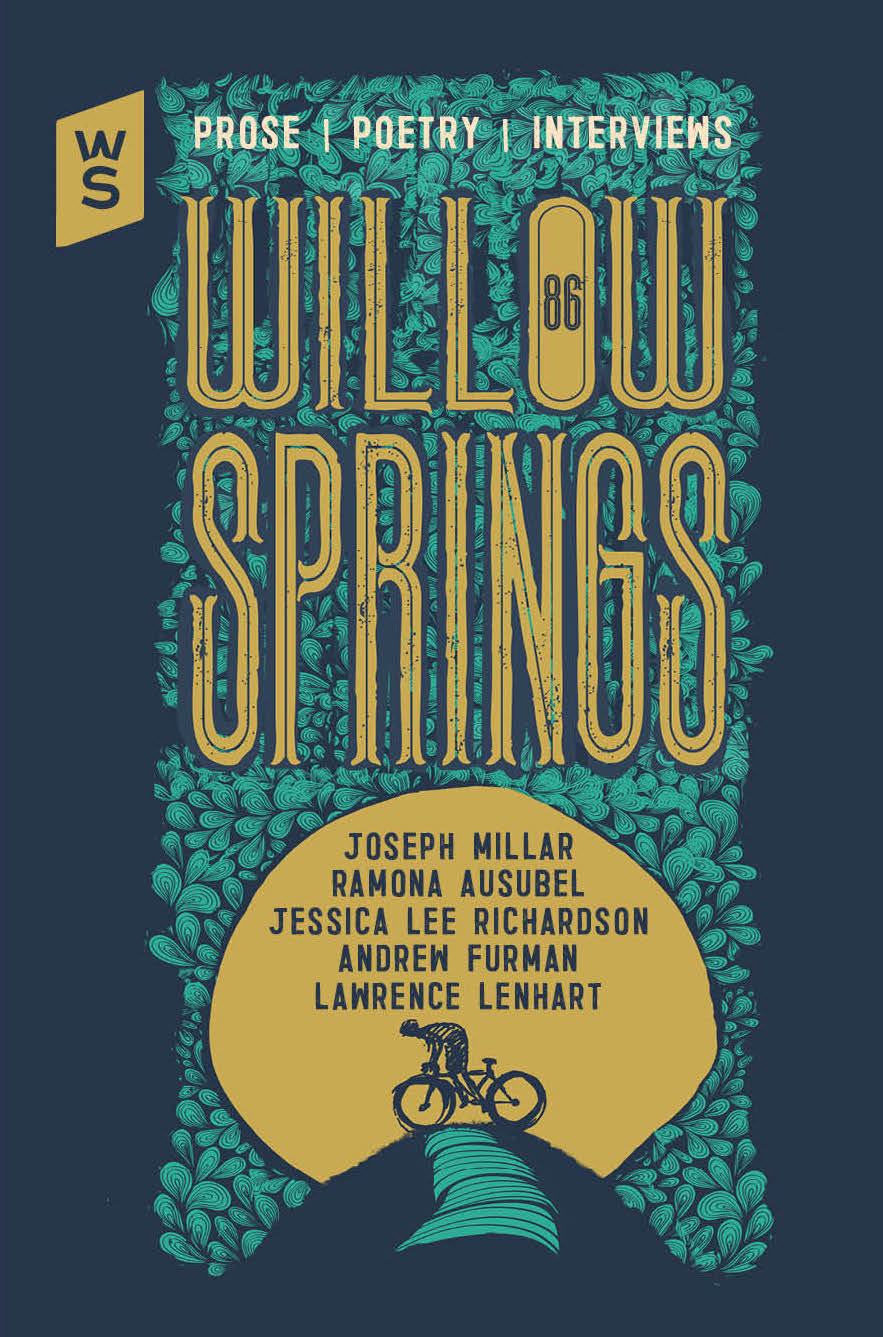IT’S AROUND THE TIME my mother, formerly Roseclaire, emerges from the lower depths. She's been living in the basement since I was eight, floating at playroom level. She sleeps in the tiny au pair bed and makes coffee in the tiny au pair kitchen and washes up in the tiny au pair bath. She lives amidst American Girl dolls, feather boas and chunky dress-up shoes, my rocking horse and board games. The delightful environment has an impact on her. She is Happy.
Not the adjective. She's Happy and making the change legally. Sometimes we need to disavow whole parts of ourselves, she says. Going forward she will only respond to people who call her Happy. She expects everyone to get on board. No one does. She's not entirely surprised. But she's deeply disappointed and saddened by the lack of spiritual depth exhibited by humanity. By humanity she refers to three people who still sort of associate with her. Her parents and their cleaning lady.
It's around the time my guidance counselor asks why I haven't signed up for a college meeting. He has this patter-you're so alternative, you should be somewhere alternative, given your alternative nature- it's droll. My nature is not alternative. I'm just not thinking about college. I tell him I like history because it's crap that happened. He thinks I'm a hoot, says alternative more and go somewhere with good history.
You can still call me mum.
I've never once called her "mum" because we're not Brits. We're not even Protestant. We're half-Jew/half-RC. I continue to call her mom and chalk mum off to her adjusting to thinner air. I like her better in the basement, catatonic and out of view. Here she is blinky-eyed and stolid, zealous with newfound nondenominational spiritualism.
She has glommed on to a virtual church, Testament of God. She can't go back to the Jesus mongers at Our Lady. The biddies there don't talk to her anymore because of her extramarital shenanigans culminating in my father's departure and her fall from grace. She spends a lot of time on ToG's site. She has not graduated to knowing what is going on with me. Take college. My father is going to foot the bill. He lives in Bethesda. That's always been the plan, the one thing he is going to do-out of guilt for setting up shop and producing a second family in no time. My mother never mentions the C-word. She has forgotten how old I am. I'm a high school senior.
What's happening at school?
Predictable Memory Lane stuff.
I hope you finally have some good teachers.
That ship has sailed.
I hope they cleared out some of that dead wood.
No one is focused on academics.
What are people doing this summer?
Nothing. As in the end of high school. What?
I didn't say anything.
I'm tired of taking my buds out to hear her. I spend half my life with my head and torso pitched over the basement stairs, my ass and legs in the kitchen. I tell her that if she doesn't want to yell she should consider venturing upstairs for a minute.
I'm thinking about it.
Or obtaining a megaphone. She obtains one. Her shrill mechanical voice cuts through the silence of the house. It's less depressing than the robotic kazoo voice people have after their voice boxes are removed. But I am forever jolted by squealing feedback preceding her communications.
Any interest in Sculpey Clay?
I'd love a turkey burger.
Exercising for the next thirty minutes.
She is exercising. She's downright peppy. She constructs a training circuit, a Chutes and Ladders-type set up involving an indoor wooden slide and platform, multicolored jigsaw foam blocks fitted together in a large mat on the floor-for calisthenics. There are hula hoops, my once-coveted Nickelodeon Moon Shoes, a Skip-It, a kid unicycle and other stuff. She saves the unicycle for the end, after planking and crunching on the mat. She wears knee and wrist pads and a bike helmet. I can tell what part of the circuit she is on at any given time. Clickety-clack = Skip-It, squeaky thuds = moon shoes, exclamations = unicycle as she grabs for the wall.
There's a pogo stick. Boing-boing. I hear her short sharp breaths. She insists that I watch Reverend John Good, Testament of God's fearless leader.
His shop needs to invest in a good mic. This guy's mouth is pressing on it. She has the volume painfully high.
I WANT YOU.
Pointing like Uncle Sam.
See the way he's pointing at me?
He's pointing at the camera.
My heart jumped, Elodie.
Because it's deafening and terrifying.
His short, crumpled black hair is pressed flat to his skull like he irons it. He has small dark eyes, sallow cheeks-Mediterranean-ish skin, could be Indian, could be Latin, Middle Eastern. Accent vaguely southern. Hard to decipher.
No, because I'm alive. Have you noticed my sense of humor is coming back?
It's around the time I notice her humor receding like the tide in time-lapse.
I REMEMBER OUR GOLDEN PERIOD, when I'm sixteen and spend every day downstairs in the serene colors and cheerful imagery. A jack-in-the-box shoots from the cuckoo clock hourly to "Pop Goes the Weasel." My mother and I sit at a folding table. I watch while she works with my art kits, markers and crayons, construction paper and scissors, glue sticks. I make myriad variations on a potholder with multicolored cotton loops. She shows her college portfolios. They are stuffed with drawings, fashion sketches and concepts for textiles. Her work is very iconoclastic. Very beware The Oppressor. Very she must have known something about herself.
But these are nice days. She is animated and chatty and wants to get things off her chest. Tell her origin story, how when she is still in college, her parents-aka my grandparents-start worrying about her path.
Out of nowhere they foist this upstanding guy on me.
Upstanding guy being my father. It's hard to imagine frail Roseclaire as bold rebel-vixen, hewing close to the line of eating-disordered, all dark poetry and edgy art.
My personality was heavily curated. Envision Theda Bara. Raccoon eyes and black lipstick.
I learn that at twenty-eight my father is prematurely crusty and lives alone in the suburbs.
He couldn't wait to be his parents. Belong to the club.
My mother tortures her parents, especially her mother, for being bourgeois. Ooh, a man. She does that funny. The courtship era is uncanny, in relief, her parents caring so much about something she has not thought about.
Like a timer sounding, a roasting bird. 'She's ready!'
There is fuzzy outrage at the margins of her story. I imagine her home on a weekend, stretched long on pink shag, tugging at woolen strands, making a bald patch on her kid room carpet. She is quite the comedian telling this chapter, riffing on the names of country clubs-Tumbling Brook and Verdant Hills.
They all sound like mental institutions.
But she tries ridiculously hard to be charming when she meets my father. The timer, the bird done, she keeps saying. I had reached a temperature. She's extra-creative for their big date-tennis- and wears a form-fitting pleated white skirt that goes from ribs to ankles. Clay turns it filthy red. Midriff-revealing T-shirt. Sneakers. Mink stole. Choker. Earrings like chandeliers.
I say it takes nerve to wear a get-up like that to a mental institution and she says That's funny, Elodie. She is not expecting me to have a sense of humor and is pleased and recognizes something of her self in me.
I was an odd gazelle, loping around the court.
She galumphs around the room. She is arguably beautiful.
I race upstairs to her jewelry box. I know the earrings and sometimes dangle them under my nonexistent lobes. I bring them to her.
Those are the ones. You can have them.
She shows me her wedding album. She can't do Catholic, my father can't do Jewish, so they do Unitarian. They move to Heart-of-Stone, Connecticut and fit right in. She still lives there, no longer fits in and no longer cares.
She does not trash-talk my father. She blames herself.
I expected Paul expected me to gel somehow, take a shape. He didn't expect anything. But I pushed against all that inevitability.
Everything was ironic, she says. Even the way she decorates. The vintage eyeball can light, a moderne touch to the sunken living room, is intentionally like her parents' house. I was programmed.
I laugh at her robot voice and trance walk.
She describes an emotional paradox, dressing like Doris Day but wanting to be Patti Smith. I'd put you down to nap, close the shades and perform all of Horses under the eyeball. I ask her to show me, upstairs, just this one thing. I want her to come upstairs.
No.
She does not share the sordid details of her downfall. Hearsay is that the contractor responsible for my playroom-cubbies and kiddie stage and make-believe kitchen and oven with real knobs-is the cause of her demise. And there may have been friends' husbands.
Her prim cronies ghost her. I know these people and their children. The mere whisper of misdeeds pulls them toward each other, magnetic dust. I imagine them in a tight circle, nodding, arms folding and unfolding, eyes to the ground, eyes boring holes in each other.
They refused to acknowledge me, she says of the old gang. She sings "Bye Bye Love" melodramatically and imitates ex-pal Trish's three faces-wan and languid, scrunched crybaby, Munchian scream. Paige's horrific accent and mannish timbre. Bronwyn walking-gorilla arms and pigeon toes. Former Roseclaire is funny.
She feels rotten after so much laughing.
Go upstairs, Elodie. I don't want to talk anymore.
I do not know if she remembers our golden period.
SHE DISCOVERS "I-WITNESS,'' ToG's sermon library, and binges on backlog. All John Good all the time. There's no way his words don't ring in her ears. There's no way his ideas don't infiltrate her thoughts. From my room I hear the rise and fall of his incantations. There's no way he doesn't permeate her being.
Elodie, did you know that we tread the same path as our biblical forbears?
I haven't thought about it.
My Expulsion caused spiritual bruises. Reverend Good says that looking back with curiosity rather than shame will heal them. He calls it spiritual excavation and cauterization.
I watch some of the sermons. In them, Reverend Good is rehearsing. He looks down, makes notes, looks up, stumbles on words. My mother probably sees this as proof of his humanity and authenticity, her favorite words these days. And spiritual. And spirituality. And spiritualism. Sometimes he grins crookedly, his eyes darting to the side. Someone is there with him. I think she thinks she is.
The videos are cheese from a production-values standpoint, worse than local access-single, straight on camera, medium/close shot of the Reverend serving up his wisdom. The camera is too low, the frame capturing his torso, shoulders, neck and face, his crown severed. Colors are muted and the focus is off. If he were not so prone to flashing smiles at odd junctures, he would resemble a sweaty missionary pleading for his life from a war-torn region. At a podium.
I set up her first-ever electronic handle-she's meeknmild@gmail, password chlld0fG0d-so that she can write to John Good. She composes more words to revredeemer@testgod.net in a day than she broadcasts up to me in a month. I read their emails when she is in the tub.
DEAR ROSECLAIRE,
I AM SORRY THAT YOU LIVE IN THE BASEMENT. I AM GLAD TO KNOW YOU ARE WATCHING "I-WITNESS" AND THAT IT IS OF COMFORT TO YOU.
BOUNTIFUL BLESSINGS, REV. JOHN GOOD
Dear Reverend Good,
I did some things that upset people. No one talks to me at my old church.
Most sincerely, Roseclaire
ROSECLAIRE,
A CHURCH THAT DOES NOT WELCOME A CONGREGANT MIGHT CALL ITSELF "CHURCH" BUT IT IS NOT A HOUSE OF THE LORD.
BOUNTIFUL BLESSINGS, REV. JOHN GOOD
Dear Reverend,
I mean to say I am not innocent.
Sincerely, Roseclaire
ROSECLAIRE,
NO ONE IS INNOCENT.
BOUNTIFUL BLESSINGS, REV JG
THIS IS THE TENOR. Time unfolds.
Reverend,
Recently I have come to see that my former, overplayed and no longer serviceable self needs to be ousted. Or maybe surgically removed, I'm not sure of the metaphor. Having my old self gone would allow my new, more positive self to claim its rightful position. Is it dramatic to say I want my old self dead?
Eternally thankful for your guidance, Roseclaire
ROSECLAIRE,
YOUR WORDS HAVE PROMPTED MY LATEST SERMON, ''APPROPRIATE YOURSELF!" IT SPEAKS TO THE CRITICALITY OF EMBRACING A NEW SELF, OR FORMER SELF LOST IN THE VICISSITUDES OF LIFE. BE YOUR AUTHENTIC SELF. BY ANY MEANS NECESSARY. TO DO OTHERWISE IS TO GO FALSE.
GOD'S LOVE, RJG
My mother plays and replays the harangue she has inspired. She bathes and blathers for extended periods.
Elodie, I'm reconstituting. Like a compressed sponge. Remember the capsules that puff in to animals?
I could answer. I could not answer. She's not talking to me. She needs a sticky spot for her utterances while the Reverend blasts over laptop speakers: FALSENESS IS A TERRIBLE FATE.
He's about to give away the secret.
I have heard this two-hundred times. It's not a secret anymore.
THERE'S A SECRET I'LL LET YOU IN ON. BUT FIRST YOU MUST RESET YOUR SPIRITUAL MACHINERY TO CHANGE YOUR SPIRITUAL OUTPUT. IT TAKES A SIMPLE PUSH OF THE COGNITIVE-SPIRITUAL BUTTON.
Herewith the secret:
YOU CAN APPROPRIATE A NEW SELF. THE SELF YOU LOST, HAVEN'T BEEN, COULDN'T BE, REFUSED TO BE-
Who doesn't know this?
And when she isn't playing it she's proclaiming bits and pieces with her mouthpiece, sometimes in call and response. Don't go false-I have only ever gone false! The cognitive-spiritual button-I will push that button!
The trumpeting is jarring even with the basement door closed.
I love this part. Watch this.
I will not. I know what happens. At the end of his rant, Good says YOU WILL BE HAPPY. Then he has a better thought, writes it down and restates: GOD'S WILL IS FOR YOU TO BE HAPPY. He breaks character, looks up squinting and says I LIKE THAT, LET'S GO WITH THAT.
Elodie, you've got to see this.
You would think she is watching recently discovered outtakes ofJohn Lennon or someone important. I re-close the door.
Later she blows her horn: Epiphany!
Having one!
Come down!
Elodie!
I tell her to come to the bottom of the steps. She does, holding my ancient Magic 8-Ball.
Am I Happy? She shakes the ball. Signs point to yes! She looks up at me.
I'm ready to come upstairs.
IT SHOULD BE TRUE that motivation, wherever it comes from or leads to, is better than no motivation. But I dread her re-ascent. I imagine her navigating the space shakily, awestruck, like E.T. or Rip Van Winkle. But her arrival is anticlimactic. She walks into rooms, glances around, unimpressed, as if a parallel version of herself has been here all along and grown bored. She throws out a ton of crap- clothes and shoes, desiccated eye pencils and hard lipsticks, formerly beloved objects.
The things I cared about.
Many decorative pillows form a pyramid at curbside.
Such superficial concerns.
I do not remember the pre-descent era- shit hitting the fan, drawers slamming, feverish shushing or other signs of domestic cataclysm. I vaguely remember my grandparents around, my grandfather on the phone, waving me out of the study. He and my grandmother cut a deal with my father by buying the house so that their daughter can stay in it with me. Except for college, they will pay for everything. They are sorry. They sold my father a lemon.
Happy is surprised to find that I sleep in a room off the kitchen and have for several years. It is scary to be on the second floor alone. She is also horrified by the way I keep my little squalor palace, piles of DVDs an obstacle course on the floor. They may look disorganized but I know the location of every title. My room is cozy. I refuse to let her touch or move anything. She is put off by my ferocity and something else: that I have actual habits and preferences. It is unclear what she thinks I have been doing all this time.
She wants to renew her license in order to attend ToG in person. I refuse her a lift to the DMV. Not because I am getting ready to graduate, though I am. She calls a taxi.
You're very selfish, Elodie.
In no time she is back behind the wheel and speeds off to ToG, spending an inordinate amount of time there- Sundays at first as an attendee, then volunteering on weekdays, then evenings. She talks about the place breathlessly, and about him, John Good. Every thing he says is of critical importance. Like Moses he bears a powerful message. He feels deeply.
Happy is a child-tyrant, veering between two modes: ecstatically chipper and darkly apocalyptic. Anything ToG ignites marvel and wonder in her, like a carnival- the Tilt-A-Whirl, ahooga-ahooga horns, atomic fireballs. Alternatively she is grave and categorical. Living in- trying to get me to live in- her narrow universe. She starts conversations chipper, vibrating with enthusiasm.
I hope you will meet Father Good soon.
Why should I meet him?
You don't want to meet Father Good?
Why should I meet him?
He'd like to meet you.
I don't want to meet him.
She leaves the room and reappears a minute later.
The Devil has a way of tricking us.
I'm eighteen. The Devil has never been a topic of conversation in our house.
The devil tricks us into thinking that if we allow a better, stronger man into our lives it is somehow wrong because it will be hurtful to our father.
I do not know if she is talking about my father or her father or Our Father or so-called father Good.
Elodie, your father abandoned you.
My father abandons her for screwing the shelf builder. When her town-crier biddies find out, my father leaves and I am left in the process. As the result of her shenanigans. I say just that last part.
You have a lot of spiritual homework to do, Elodie.
Because I don't want to meet Johnny B. Goode?
Leave this room.
Silent violent storm cloud arrives. The Whip grinds to a halt. Antique cars file solemnly off the lot. Babies howl.
Happy's new way of disapproving gives me palpitations. I'm used to her passivity and out-of-it-ness. I try a new tack, no idea where it comes from: I brighten up my never-brightened face and explain that I'm not religious. I say this in an understand-me tone, which softens her. Slightly.
You need spiritual guidance. You're vulnerable and afraid. You hide from the world. You live in that hovel and watch movies.
I say nothing about her lengthy stay in Candyland.
Time passes. I take a different tack. Get a wispy tattoo on the back of my neck.
Elodie, you are not Jewish.
What do you mean?
Elodie, you know that is a Jewish star. You are Unitarian. And you look like a convict.
I went to Unitarian nursery school. Technically I'm Jewish since you're Jewish.
Happy casts her end of days look.
AT COLLEGE I BECOME a cave-dwelling ogre girl. Also a non-washer of hair, non-brusher of teeth, pimple squeezer and owner of no more than three shirts. I like the freedom that comes with abandoning hygiene. But I am not a fan of frequent palpitations and acid reflux- the latter especially because it hurts to swallow anything, including my own saliva. I carry a cup for spitting. I'm not super social.
But I find Wolf's Den, the film people house. It's a throwback, a cottage with flea-infested couches. There's a torn pull-down screen and a TV with tubes inside. An actual alum, Wolf, who is around sixty, started this place. He donates money to keep the building from being razed. It's a haven for those of us onto the fact that there's nothing to do in Bleaksville, New York. I stumble in one night because the ceiling fixture in my room is making things oblong and I realize if things suck this much when I'm twenty-one I can always off myself. That thought prompts me to experience my remaining time outside of the dorm.
Inside is empty and dead quiet. Dreyer's Joan of Arc is playing not to get all Ouija board but someone is expecting me to wander in- subtitles and no music, the way it should be seen. Except that it's a flickering VHS on the boxy TV. Lynch and Tarantino would mark this offense with a murder-suicide, but this is what I encounter and I don't know any better, so I curl up and watch. I don't know the story but I know its steep-angled world. I know its bullies and hypocrites and cretins. I know the androgynous soul with her bowl cut. I know her strangeness and terror and steadfastness. I watch this many nights, many times.
Happy calls occasionally and talks in a hushed, purposeful tone. The Reverend and I have grown quite close. I hack her gmail sometimes, to keep tabs on her, on them, but close out forever after seeing YOUR PURPLE SUCCULENCE in a subject line. On a weekend home I meet Him. The real Reverend is sitting at our kitchen table eating a frozen pupusa and wearing my Blue's Clues slippers.
YOUR ANGER IS CORROSIVE is his main message to me, smiling and blinking. YOU'RE CHIPPING AWAY AT HER FOUNDATION. He talks like a baby and makes micro-hatchet chops in the air with the blade of his hand, barely moving his forearm, barely parting his lips and teeth to speak.
I sleep in the basement. She never goes there anymore. Hatchet boy prefers the big bedroom. I sift through her tub-time sketches from last year. His moony face resembles a topographical map, on other pages are close-ups of his features-crimped hair, pocked cheek, iris and pupil.
His intentions are only benign. SHE NEEDS TO SHORE UP HER SPIRITUAL SCAFFOLDING. He likes architectural metaphors. Meanwhile she wafts around in a white turban. Not as in post hair washing. As in gold medallion affixed at her forehead. As in ashen guru. Her face is serene and severe in equal measure. Cancels to blankness. SHE WANTS TO BECOME A DEACONESS.
Come summer, I avoid Connecticut and work as a ticket taker and concessions "associate" at a botched carve-up job of a theater. Not properly gutted and plexed, it's a former single screen that some enterprising idiot with no concept of sight lines has portioned into awkward spaces by erecting cheesy walls. I lurk around the booth and sidle up to the projectionists. One shows me stuff. The place is switching to digital sometime in the coming year, he tells me. Everything's going DCP. His job will get boring. We talk about the degradation of the image and the viewing experience-the flattening that comes with digital, like administering lithium to a perfectly coherent and vivid 35mm. In the meantime I learn the ins and outs of their Kineton and platter, an increasingly despised system that has merits. People tend to throw the baby out with the bathwater.
That job and the Den give me a focus, but sometimes I don't feel solid. On an especially drifty night, I pay a visit to one of the campus mental people.
Would you say it's an out of body experience?
I would not say that. I'm in the mental office. My body isn't the problem. I just say things seem vast when I walk around. The word "vast" reverberates.
Have you been diagnosed with agoraphobia?
I pinch my thighs and pull my elbows in tight. Not recently, I say.
Do you have an eating disorder?
I eat from vending machines. The dining hall lighting is depressing.
Do you have panic disorder?
The guy's lopsided beard annoys me and being annoyed feels better. At least I'm not unhinged. Happy is unhinged. Happy is unassembled. Happy is a heap. All Happy says is I'm praying for you.
Let's keep chatting, he says.
Sure thing, I say.
I try not to notice the quiet. Like there's cotton in my ears. I start to hum when I walk around outside or when I'm in my room. And when I'm not in class I'm in the Den. I sleep there and get a lot of work done on the shredded corduroy couch in the back corner. I'm not talking to a ton of people but what can another person say that a film can't say less annoyingly?
Watching Salesman, a viriti-style doc about an agnostic chain-smoking door-to-door bible seller, I realize that any man Dr. Jekyll, David Koresh, Father Christmas-could show up and tap-tap-tap on Happy's brass knocker and she would let him in and buy whatever BS he is selling. It's pathetic to have instinctual trust and belief in a person- worse, to have a craven need for such a person. Kids need to be this way to survive. I feel bad for kids. I decide never to have kids. Films tell me everything I need to know.
I managed to do okay in my major, which turns out not to be history because, lo, there's this whole subject called cinema studies. Four years watching a shit ton of movies. By which I mean love.
WOLF, AGED HIPPY of Den fame, helps me get the gig at The Jewel, a single-screen near NYC. He knows the owner, a guy, Val. I'm interested because where can a person find a single-screen nowadays. I find a place in the city since there aren't many young people in the town. Not that I think of myself as a young person. And not that I plan to talk to anyone because I'll be sole projectionist, which means endless alone-time, aka some things never change.
The derelict I take over for is sitting at concessions while the film is running, playing with his phone, bored out of his mind. This would not be my practice. Six people are watching the POS film he has thrown onto the screen. He shows me the projector and sound system. We take the snaking stairs and he complains how hot it is, how there is no air. Obviously there is no air. Nineteen-twenties movie houses are built for nitrate stock. In the event of overheating film, the projectionist closes the fire shutter immediately, it falls like a guillotine, separating the booth from the house. Patrons escape while everything in proximity to the exploding film, projectionist included, perishes.
I meet Val, "President & CEO." He expects me to run the house, concessions and booth- build prints, run shows, break down, clean, oil and make repairs to a last-of-breed platter and projector- and curate. I am meticulous with my responsibilities so that he has few reasons to stop by.
I make the place my own and spend a lot of time in the booth, even the thickest summer nights. The heat leaves my body and settles at the edges of the floor, mingling with dust balls. When I get my hands on a classic I do a one-off screening for film people. The sandwich man at Craptown Deli is legit and there are others. They are not to be confused with movie people who ruin the experience by coming in late, talking, carrying picnics, laughing inappropriately. I tell them to be quiet or leave. As in when I put up The Searchers and Scar appears for the first time-John Wayne's alter ego-and a moron guffaws.
His hair, his face paint. So fake.
And when a mother says to her little girl the little girl will be all right. Nothing happens to the family.
I have a moral obligation to set her straight. Something happens to the family. On the bright side, Debbie, aka Natalie Wood, doesn't get mutilated like her mother and sister. She only gets violated.
The mother looks at me in horror like Happy would. Happy would say your scorn for mankind is vast.
Fine, don't find out that Scar makes Debbie his squaw, that honor-driven Ethan Edwards wants to kill her-when, at long last, he finds her. Don't realize that you will care about him and wish him dead with equal intensity. Just know that these films are intended for the cinematically curious. They're not for killing time because you can't think of a constructive activity for your kid. There's the door.
Same sort of thing happens when I scare up a print of African Queen. During the tender gruesome leech scene, when life is being sucked from Humphrey Bogart. He is pushing himself beyond any normal limit-for love and humanity and to thwart the Germans. I hear ewwww and gross and OMG. I have no problem ejecting these people.
Worst are Teen Fridays, when that set comes out of the wood work to escape their oppressive parents. A lot of coming and going through the side exits, girls crying in the bathroom, toilets clogged, alley strewn with not-water bottles and cigarettes. Someone has to keep tabs on these pod people, so I wander the house. Likewise, Cheap-Geezer Wednesdays-ten bucks for the picture, as these patrons say, small coke and a candy. They like to converse-back when we went to the pictures-and complain because I only stock Duds and Dots. A chocolate thing and a fruit thing. Is it my fault some people have no teeth? I bundle piddling cash with the patience of Job- un-crumpling the fives and ones the oldsters pay with. Val insists on making deposits, which I'm sure he pockets.
He constantly threatens to close. Our margin is nil, our margin is nil.
I tell him we're creating a film culture.
You should pay me. All you do is watch movies and eat popcorn.
I do not follow his instructions for popcorn: triple the flavacol to make customers thirsty. I consider my work sacred, on par with health professions.
You're a dinosaur, Elodie.
This is supposed to be an insult.
And you need to be friendlier. You're a misanthrope.
I can't believe he knows that word. But I'm an altruist. One-hundred percent I would immolate.
And you're a tyrant. No wrappers, no texting. You kept a girl from using the bathroom. Her father complained.
During L'Enfant Sauvage. Truffaut-playing the doctor-observes Victor in the deaf-mute asylum, proves that the wild boy can hear clear as a bell and decides to take him home to educate him. When they arrive in the countryside, this cipher saunters out to the lobby. You see hope and possibility-Victor is finally going to be socialized. But he's being shepherded and prodded along. He doesn't walk upright or straight. He scampers. Children gawk and run around the circus freak animal-boy. In this scene you realize, not wanting to realize, that he will never be normal.
Don't come to my shop and miss the essence of things.
This isn't a library.
It's a church.
THE LIVING BEING I spend the most time with is a four-pound dog that belongs to the old lady I rent from. When I first meet her, she asks if I have a guarantor for the rent.
Like all these other scions. She gestures dramatically when she speaks.
She means to say this local universe of spoiled children. I get that with the sprawling sweep of her hand. Every part of her is expressive-mouth, eyes, giant ears, features that, taken apart, are monstrous. But the totality of her appearance is magnificent. She is tall for a some-number-generian, pterodactyl-ish, with long bones, knobby elbows, knuckles and ankles. I'm on the short side and have to look up at her. Like crane my neck.
I tell her I would have been an heiress but for a simple twist of fate.
Well that's the best kind of heiress.
Her sagging Queen Anne is not fancy enough for a scion but I am polite. I need to negotiate. You're hired on a trial basis is Val's excuse for fraudulent pay practices. I ask Old Lady if there is work to be done around her brownstone-chores, errands, garbage, recycling, shoveling. I need the rent to be low.
How low?
Quite low.
How quite low? Her eyebrows lift to the ceiling of her soaring parlor.
She lives on this floor and the one above. It's elegant and mildly crumbling. Along the street-facing wall, thick burgundy fabric is the mantle for a mighty trio of windows. The brocade swags ornately at top and cascades to the floor on each side, landing in a dusty whorl. I spy Peanut, a well-named dog, scooched next to one of the heaps. She eyes me warily. Her minute front paws touch the fringe of a colossal silk rug. Teal and celadon. Fancy in its day.
You're admiring the Anatolian. It was my grandmother's.
Jesus. Her grandmother's. I say it's like an ocean.
There are more than a few photographs of Old Lady tricked out in sultry gowns. At the Tonys and Obies and swank dinners. In more than one she's accepting an award. There are framed Playbills and reviews. I have no idea about theater. Except for the classic adaptations. His Girl Friday, masterpiece based on The Front Page, is in my top ten.
"I was not meant for movies." She touches her face when she speaks and points a long finger at the wall of fame.
"That was a barest-ever bones production of The Wild Duck, only a wooden platform. I tried my hand directing in Williamstown one of my very favorite Ibsens. The truth-telling interloper rents a room in a family's home and destroys them by revealing the lies they've told each other. Lies that afforded them happiness and therefore survival."
I promise never to tell her the truth. She appreciates my sense of humor.
"We cannot make it through life without pretending." She gestures. "That's Edward, a dear friend." In one she is very young, bathed in a spotlight on an otherwise dark stage, like Roseclaire playing Patti. "My Brechtian phase," Old Lady sighs. "Here is Mike, Maureen, Zoe at the opening of Three Tall Women. Wonderful."
Wonderful. She rents the entire top floor but I need a fourth of it. Mattress, couple of crates, a lamp, and the bathroom. I ask if she will consider a quarter of the rent.
"Do you mean to tie a string and cordon yourself off?"
I can. Or put down tape.
"A grim crime scene?"
I'm saying I won't set foot outside my area.
"That's very odd. No."
Do you have a basement?
"It's a hovel," she says.
I'll take it, I say.
We have a deal. Basement- and I will deal with trash, return the bins, separate recycling.
"And other chores on an ad hoc basis."
Fine, other chores. She mostly needs me to walk Peanut at night. The stairs down to the sidewalk are steep, the lighting isn't great. Peanut is a swell dog.
Old Lady sounds educated and aristocratic. I don't know if that's natural or the result of declaiming splendid lines her whole life. She asks about my family and I tell her my father moved to Maryland when I was eight and my mother lives in Connecticut but we're estranged. I say that word for the first time because it seems applicable and signals don't ask. When I speak the word it seems to be coming from somewhere else. I am reverberating.
"Estranged"-Old Lady repeats-"is just like it sounds."
Then she says, "I know about estranged."
But she doesn't know about Happy and her bullhorn. About Happy jumping in my moon shoes. About her not speaking to me unless it's to say The Reverend and I are praying for you. About her calling him The Reverend. And about him saying that my rage is destructive and that I don't want them to be together be cause I have a SPIRITUAL DEFICIT.
I just nod at Old Lady like cool. Then I get reflux and have no place to spit and it can be a day before my chest feels normal again if I swallow but I swallow.
I WALK PEANUT when I get home, no matter the time. She has a weak bladder and is a night owl. When I bring her upstairs, Old Lady is asleep, perfectly straight, flat on her back, hands crossed on her sternum. Her breath is even and slow. Illuminated by light from the hall, her head is outsized. A satin sleep mask rises over and down her mountainous cheekbones and does not hide the bony ledge where her eyebrows rest. Even when slack, her mouth forms a smile. Saturdays are especially late but Peanut waits, coiled tight in the vestibule. She mews when I unlock the big front door. After we walk, I take her downstairs with me so as not to disturb Old Lady.
I hold her up to my bathroom mirror. She would not be Happy's idea of a dog aesthetics-wise. That's okay, I tell Peanut, I'm not her idea of a girl aesthetics-wise. I imagine Happy inside the mirror, scanning my topography and stopping at loathsome markers- hair, skin, teeth, gunky nail beds. I imagine her saying those pimples, Elodie. I scowl.
I get in my share of real altercations. With Val. With Carlton, SOB projection parts price-gouger and seller of defective sprockets. Even cinephile deli-man, when he says the usual? When is it not roast beef, roll, light ranch, BBQ chips and black coffee? I don't inspire deep affection in people. Except Peanut. I bring her to the booth on slow days. I pinch meat from my sandwich and roll it into microscopic balls for her.
She is mesmerized by the operation: film pulling away from reel, glinting, shimmying, ascending through guides and rollers, traversing overhead as a laundry line. It's a perfect system from pay-out to take-up, the Cinemeccanica pulling the strip down, guiding it into the gate, holding it taut as it passes frame by tiny frame before the lamp house, where light hits film hits screen and magic is made in the darkened theater. Crunchy. Wondrous. Crackling. Fan whooshing. Motor humming.
I don't know if Peanut appreciates beauty, truth, or mechanical complexity but she appreciates my quiet careful work. She is calm in the hallowed grotto of rusty reels, cockroach-hued shards, blades, stuck flecks of marking tape, dried dregs in chewed styrofoam cups. She smiles, sensing the miraculousness of it all. She is toothless. Her slip of a tongue hangs from the side of her mouth and makes her appear unabashed. I feel for her, laid bare like that.
Old Lady cooks dinner on Mondays. I buy her ingredients in the morning and go to work late. She tells me about auditioning while still in high school and never telling a soul her dream of becoming an actor. No one would have believed her, she says, because she is gangly. Acting is all she thinks about and she is very studious. "The readiness is all," she quotes, and tells about taking the bus to read for parts, inventing methods to calm her nerves. She imagines her fellow passengers are on the way to the same audition and that they are nervous. When one of them disembarks, it is on account of nerves. "Fear is a formidable foe, Elodie." Old Lady looks at the remaining riders while saying lines to herself, imagining how they might speak them. This helps her contemplate different intonations and motivations- "a range of personae" to inhabit.
"In some way, too, by inventing a cohort, I felt less miserably alone."
I can relate, Old Lady.
"The theater was my religion." The Theater. She says that stirringly and calls the script "the Scripture." Her eyes sparkle when she talks about her directors. "They were my gods. I watched their every move, wrote down their every word. They thought my performances were for them. I knew better. My duty was to the audience." She is very discreet. "I had wonderful friendships," she says, covering Peanut's ears with a cupped palm. "Peanut believes that I have only ever loved her." She laughs. "But I stayed single. My work came first. I protected it fiercely."
Peanut is ever on the lookout for falling tidbits. Old Lady gives her some of whatever we eat, usually a classic beef stew. "You must learn to cook, Elodie." She mashes a carrot with the back of a spoon and gives it to Peanut.
I tell Old Lady about my plan: another year at The Jewel unless Val tears out the seats to hold cockfights. At which point I might try for a festival job. She thinks this is a fantastic idea and offers to keep the downstairs room for me so I don't have to carry crates to parts unknown. In the meantime, she suggests I screen one offs in the attic. "Wouldn't that be glorious!" I have a projector from my Bleaksville days. She says to use the long white wall up there. "Start a salon!" She loves this notion and I feel a glimmer of euphoria, an atomic fireball finding the crook of my jaw.
When she asks about my mother, I say she is on a journey of self-discovery following a religious revelation and epiphany.
"A complicated character." Old Lady stirs egg noodles in boiling water. "Is she petite like you?"
I say we have the same hair but she is taller.
"Willowy?"
She is willowy.
"Roseclaire. What a lovely compound. English or French, I imagine."
She is named after her Polish great-grandmother.
Old Lady thinks this is priceless. She chortles and holds a hand to her mouth for politeness, feigning horror at her mirth. Her eye brows hoist like sails and her face widens. She gets very serious and reaches for a colander.
"The most important thing I learned as an actor was to embody a character fully. To enjoy inhabiting her. To revel in her. To do that you must find a way to love that character. Even if there is much not to love. Find one thing to cherish."
I feel you, Old Lady. For some reason I don't have a pain in my chest. I scoop up Peanut and whisper in her minuscule ear:
"She was funny. She made me laugh."
